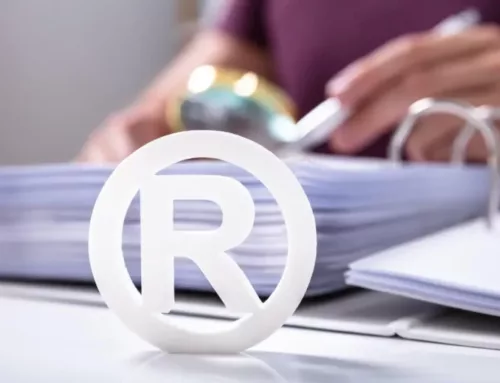
Similar trademark names can often lead to confusion and disputes over domain names. There are also times when a party buys a web address in bad faith. Whether the purchase was in bad faith or not, domain name disputes must be settled using one of three processes under the Uniform Domain-Name Dispute-Resolution Policy, according to the Internet Corporation for Assigned Names and Numbers (ICANN).
- Direct communication between the trademark owner and the current domain name holder to reach an agreement
- Arbitration, in the event the parties fail to reach an agreement
- File a complaint in federal court
Those filing a dispute must carefully follow procedural requirements for a successful outcome. Internet laws change often, so it can be difficult for even the most experienced business professionals to keep up with recent domain name dispute regulations. If your company is experiencing a domain name dispute, consider contacting an experienced intellectual property law attorney at War IP Law, PLLC, by calling (202) 800-3754 to schedule a consultation.
Domain Name Dispute Process Basics
Anyone can buy a domain name through various private internet registrars. However, intellectual property laws do not automatically grant trademark owners the rights to relevant domain names upon registration. A company may not be able to trademark a word or phrase when existing domains have the same name. Therefore, before the registrar cancels, transfers, or suspends a domain name, the parties to the dispute must reach a resolution in one of three ways:
- Agreement
- Arbitration
- Lawsuit
Agreement
Reaching an agreement between the parties without going through arbitration or the federal court system is often the simplest and least expensive option for most domain name disputes. The trademark holder and the domain name owner must come to an agreement for resolving the matter without involving the court or other parties. After deciding on the terms, the parties must complete a form of authorization to alert the registrar of the agreement. Once the registrar receives the documents, he or she will typically transfer the website address to its rightful owner.
Arbitration
If the two parties cannot work together to form an agreement, the arbitration process might be the quickest option, often requiring less time, effort, and expense than a lawsuit. Domain and trademark name holders can get assistance settling their disputes through an arbitrator, who works to resolve the issue outside of court.
Lawsuit
Trademark owners have certain legal rights under the Lanham Act. The Anticybersquatting Consumer Protection Act was enacted to protect trademark owners’ rights when another party purchases a domain name connected to the trademark. When disputes occur because of bad faith, the trademark owner may choose to file a complaint in federal court. When a person or business, referred to as a cybersquatter, registers a domain name in bad faith, the trademark owner has legal recourse. An example would be using a registered trademark without the intention of publishing a legitimate website. Cybersquatting can also include a person’s or business’s name.
Arbitration Under the Uniform Domain-Name Dispute-Resolution Policy
Arbitration is often a much simpler and less expensive process, and is typically preferred when a party must choose between arbitration or court. The trademark holder must select an approved dispute-resolution service provider. The provider will prepare and submit the necessary paperwork, ensuring that it is within the guidelines under the Uniform Domain-Name Dispute-Resolution Policy (UDRP).
If the dispute involves abusive domain name registrations, the claimant can request that the arbitrator expedite the administrative proceedings. The process takes approximately 60 days from the date the claimant files the dispute to the date of resolution. However, the panel overseeing the case has the discretion to extend or expedite the process, depending on various circumstances. The timeline begins on the day that the trademark holder files the dispute. The trademark owner must file a complaint with applicable annexes, depending on the nature of the dispute and the chosen process. Applicable disputes include:
- Website addresses that are identical to a trademark name or those that are confusingly similar
- Failing to own rights or have a legitimate interest in the name
- Abusive website address registration—the owner purchased in bad faith
Filing a Domain Name Dispute Lawsuit in Federal Court
Filing a domain name dispute in federal court is generally a more complex process. However, the claimant may be able to collect compensation for damages through this option. There are certain steps to take when filing a domain name dispute in federal court. First, the trademark holder must determine the proper jurisdiction and court in which to file the dispute. After filing the lawsuit, the claimant must send a copy of the complaint to the person or business that currently owns the domain name. Trademark holders often choose this option when domain name holders buy the domain in bad faith. The disputes often fall within one of three categories:
- A third party attempts to ransom the domain to the trademark holder, which is domain hijacking or theft
- A third party intentionally uses a similar web address to attract business from the trademark holder
- The third party has already earned a profit from using the domain name
The federal court will consider many factors before making a determination. If, after consideration, the court concludes that the defendant purchased the domain name with bad faith, a judge will likely order the registrar to give the domain name to the registered trademark holder.
Consult with an Experienced IP Law Attorney Today
Web address disputes are complex and require knowledge of federal law and the arbitration processes. The disputes also require substantial knowledge of trademark ownership rights and responsibilities. A simple error could mean wasted time, money, and energy on refiling the case or losing the rights to a domain name altogether. A knowledgeable attorney can review the specifics and help determine the best plan of action for settling disputes as quickly as possible. If you are facing domain name disputes, consider contacting an experienced attorney at War IP Law, PLLC, at (202) 800-3754 for a consultation today.






